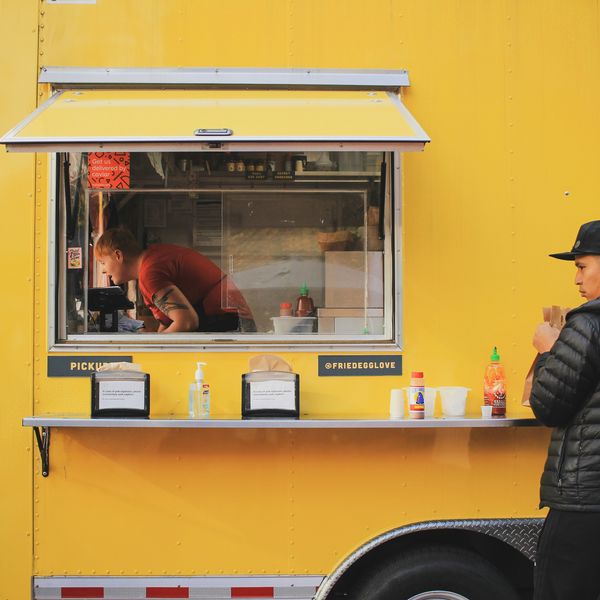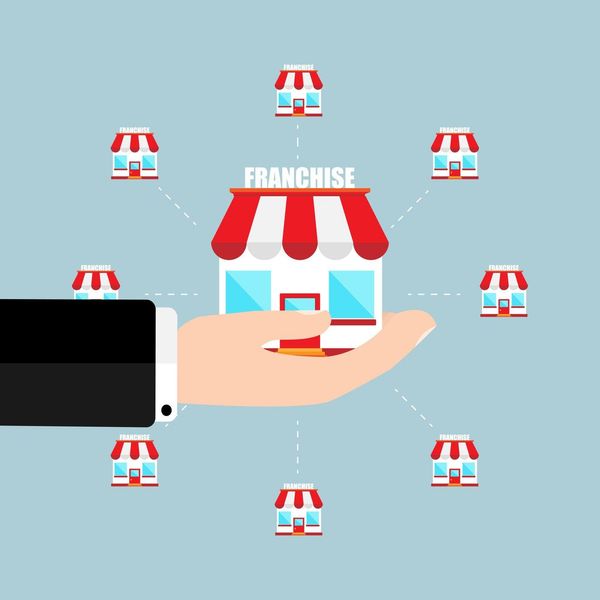Successful Franchisees Need an Independent Streak
What does it mean to be temperamentally suited to being a successful franchise entrepreneur? One of the chief characteristics of a successful entrepreneur is the ability to think and act as an individual with a high degree of independence. All successful entrepreneurs are contrarians to one degree or another. They are not followers of the pack. Followers, by definition, get low returns and compete for leftovers. They can survive off what others leave behind. That is not the role model for entrepreneurs.
Some franchise professionals say that franchisees are not entrepreneurs. Franchisees are supposed to be obedient and compliant. Just follow the instructions. It's like baking a cake! Add water and stir. Does anyone really believe that? I contend that being a successful franchisee requires no less entrepreneurial talent and skill than it takes to start any other kind of venture. To make it as a franchisee, you need a healthy amount of stubbornness and independence.
Prior to purchasing a franchise, I took a psychological assessment required by my franchisor. Of all the people who had ever taken this assessment, I was in the ninety-ninth percentile in terms of independence. This concerned my franchisor because they felt I might buck the system and be hard to control. They worried that I might develop new systems if I didn't like the franchise model, thereby creating management difficulties for the franchisor. They were 100 percent right.
Franchisors want you to score about 60 percent on the independence scale: enough to figure things out on your own, but not so much that you want to mess with the franchise's operating procedures.
It is often said that when you buy a franchise you are buying an "operating system" so you do not have to create one. That is true. Neither you nor I are going to improve on the efficiency of hamburger production at McDonald's. The best franchises have time-tested methods of marketing and operations. That, plus brand-name recognition is why most people buy franchises rather than starting a business from scratch.
But there is no rule that says you must abdicate your instincts to survive in business because you are a franchisee. Or that if the franchise model isn't working, you shouldn't look for a way to adjust it. Yes, your franchise agreement says you must operate within the confines of the franchisor's prescribed policies, but that doesn't mean you should not find a way to change what needs to be changed.
You have other agreements that are even more important than your franchise agreement, like your agreements with your spouse and children, with your mortgage company, with the face in the mirror. Those agreements matter, too. Even though your franchisor will position itself as your support system, when things get squirrely, they will look out for their own interests, so you had better look out for yours.
Learn to Be Cynical
This concept brings us back to the idea of an independent temperament. I think my own example illustrates well the importance of maintaining an independent streak even as you are part of a franchise. If there is one thing I learned, it is this: be very cynical. Pretend you're from New York. You must remain objective and independent, and anticipate changes that may occur in the business environment.
How much flexibility will you have in how you operate if the game changes economically? How convinced are you that your franchisor will be flexible enough to allow you to respond to market changes?
My franchisor has been extremely flexible, which is why I'm still part of their system and glad I am. I give them credit for awarding me a franchise even though they knew from the get-go that I'd give them some trouble along the way.
My smoothie and coffee franchise was conceived as a retail event business. We sold our products to consumers at fairs, festivals, stadiums, arenas, convention centers, and other environments that featured a high density of potential consumers in a relatively condensed time. I operated within this model for about three years.
Because I have a deep background in sales and marketing, I was able to convince the New York Yankees to give me a location in Yankee Stadium. I soon developed other locations including the largest indoor track and field center in New York, a prime convention center in Manhattan, professional baseball parks and hockey arenas in Connecticut, Long Island, and New Jersey, as well as events like the prestigious Hampton Classic Horse Show in Bridgehampton, New York.
The business model for all the venues was pretty much the same: the establishment took a percentage of revenue in lieu of rent. So for example, my "rent" at Yankee Stadium was 50 percent of sales. That's a lot, but we still did well because we were the only place in the stadium where people could buy a hard liquor cocktail without going to the private Yankee Club. At eight dollars a pop, we sold a lot of piña coladas. And for an extra shot of rum, we'd get big tips.
After two seasons, the Yankees saw that I was doing a bit too well. They decided I should pay $35,000 a year in sponsorship fees in addition to the 50 percent of sales they were taking. I bowed out and they brought in another smoothie brand, which turned out to be a disaster run by incompetent operators. The Yankees invited me to come into the new Yankee Stadium. This time they wanted 95 percent of the revenue (not a typo) and a sponsorship fee of $1.4 million over seven years. I told them I'd get back to them! While not every venue was as pricey as Yankee Stadium, they all wanted more and more. It occurred to me the underlying business model wasn't working well enough for me and would not improve, no matter what venues I found.
What Can You Teach Your Franchisor?
The event business also had its ups and downs. We could sell smoothies to Hamptonites who happily plunked down $10 for a fruit shake that cost $1.50 to make. But there were years when it rained for six days straight, and we still had to pay our $1,000 fee, regardless of whether we made any sales.
Some franchisees were coming to the same conclusions that I was about the precarious nature of the event and venue business and started opening fixed location retail stores in malls, shopping centers, and downtown locations. Most soon learned that you have to sell an awful lot of smoothies and lattes to pay the rent. A lot of them closed. Some people lost their life savings. Many are still toughing it out, and I hope they'll prosper.
My conclusion was this: we had a superb product but a business model that, at least for me, wasn't working the way I needed it to. When I bought my franchise, I knew the franchisor was not well known in terms of its brand and had a rather short operating history as a franchise. But I considered those factors pluses, not negatives. To me, it meant I could teach them something as well as their teaching me, and that they'd be open to change.
Once I decided to shift the orientation of my business, I took a radical turn with the business model, aiming it exclusively at catered events where my fee is predetermined and weather-related risk is eliminated. I set my price based on the value of my service instead of the number of drinks served.
I also provide the highest level of customer service to guarantee repeat business. I maintain close relationships through telemarketing, personal visits, e-mail marketing, and other means that are the secret sauce of my success. Today, I have hundreds of repeat customers ranging from colleges to corporations to private individuals.
There's a funny video on the Internet that quips, "When God gives you lemons … find a new god!" That's my philosophy. A franchise entrepreneur needs to know when it's time to change the game in order to stay in business.
Despite my rejection of my franchisor's core business model, they followed me into the catering segment. I sourced new equipment needed to serve the catering market, which they approved and made available to the rest of the franchise network. I wrote the training manual for catering and personally trained scores of incoming franchisees on how to succeed in this niche.
With the support of the franchisor, I continue to mentor and coach franchisees. After all, they want their franchisees to stay in business so they can continue to purchase product. It just turned out that my way, at least for some franchisees, was better than the original model (or, at least, an important addition).
I credit my success to that 99 percent I scored on the independence test. There is no one who can tell me anything when I decide to take a course of action. Just ask my wife.
My dad likes to tell the story of when he took my brother and me to our first Mets game at Shea Stadium when I was eight years old. No sooner had the starting lineups been announced than the skies opened up. Everyone ran for the concourse … except me. My dad leaned over and said, "Mitch, there's not going to be a game today. It's raining."
I replied, "It's not raining."
We sat there for a good long while in soggy silence -- my dad, my brother, and me.
As I was saying, to be successful as a franchise entrepreneur, you need to be annoyingly unapologetic and fiercely independent.
You Have to Be the Boss
That independent streak has also served Laura Lewis well. Laura is a franchisee of Batteries Plus in Idaho Falls, Idaho. "To be successful in franchising, you have to be the boss," she says. "You can't assume someone at corporate headquarters is going to do any part of the job for you. There might be someone in the real estate department who's supposed to be responsible for leases, or someone in advertising who's supposed to put together promotional material. But ultimately it's my job to make sure those things get done."
Her point is critical. Many franchisees in hundreds of franchise systems believe that "headquarters" is going to take care of things. Well, maybe. They're supposed to provide basic services, like promotional material, distribution, and operational support. But what if they don't do it, or do it poorly, or not in a timely way? Do you think you'll get your money back? Not likely. It will ultimately be up to you, and you need to use your wits to be successful.
Laura, like me, was very comfortable with sales and financial planning. When she went to training, "I felt I was ahead of 90 percent of the other franchisees. I went to discovery day with a location in mind. I knew where to get funding. I wasn't waiting for people to do the planning for me. You have to be the one driving your own success."
In other words, you have to be no less independent and self-directed than an entrepreneur who is starting a non-franchised business. This trait can be at odds with the personality trait that involves being a bit of a follower. Franchisors like people who can follow a system unquestioningly, religiously, zealously. That works when the system is developed to a point of perfection (such as McDonald's) but is not as helpful when the franchisor is not as mature.
Mitchell York is a Professional Certified Coach, small business entrepreneur, and author of Franchise: Freedom or Fantasy? How to Know If a Franchise Is Right for You After Your Corporate Career. He can be reached at mitch@e2ecoaching.com and information about his book is available at www.franchisefreedomorfantasy.com. Mitch also blogs at www.e2ecoaching.com.



